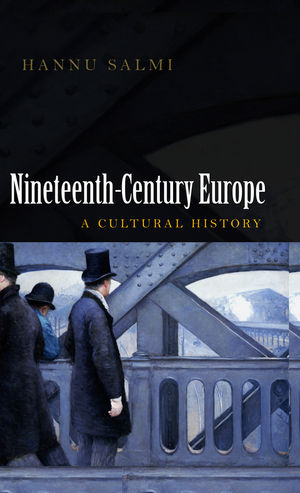19th Century Europe: A Cultural HistoryISBN: 978-0-7456-4359-5
Hardcover
224 pages
September 2008, Polity
 |
||||||
European History Quarterly
"Nineteenth-Century Europe's reworking of familiar textbook
themes in the light of recent cultural history will doubtless win
it a place on many reading lists."
English Historical Review
"[Hannu's] survey manages to compress a good range of concisely
expressed insights into its limited compass. Among the most
noteable features are its astute use of literary quotation and its
consistent concern with the differences between male and female
perceptions of the social and intellectual developments at issue
... it is also enlived by what most anglophone readers will
encounter as some refreshingly unfamiliar citations of Finnish
evidence."
History
“This concise but wide-ranging essay on the cultural
history of nineteenth-century Europe is lucid, fluent, and written
in an attractive, personal way, illustrating many arguments from
well-known works of literature. The author's recurrent use of
Finnish examples offers something new to readers from other parts
of Europe.”
Peter Burke, University of Cambridge
“Hannu Salmi's ambitious, brilliantly synthesized book on
the innumerable cultural histories that constitute
nineteenth-century Europe is to be recommended to specialists and
non-specialists alike. Above all, its cosmopolitanism, and its
vital attention to everyday lives as well as to the
world-historical events that ultimately motivate them, make it an
indispensable, and highly readable, introduction to this important
field of scholarship.”
Matthew Beaumont, University College, London
“This book is a thoughtful, well written and clear
alternative to the standard textbook treatment of nineteenth
century Europe. Unified in its vision, instead of the grand
political narrative, it offers a rich survey of the perceptions and
meanings that Europeans developed to make sense of a changing
world. Salmi uses popular fiction of the day particularly well to
illustrate his themes of modernization and its attendant
anxieties.”
Lenard R. Berlanstein, University of Virginia



